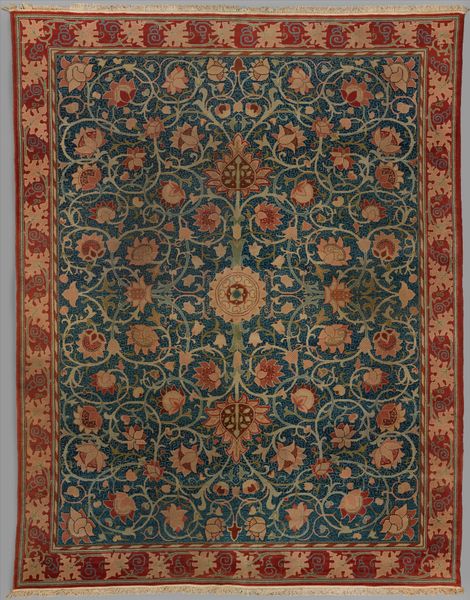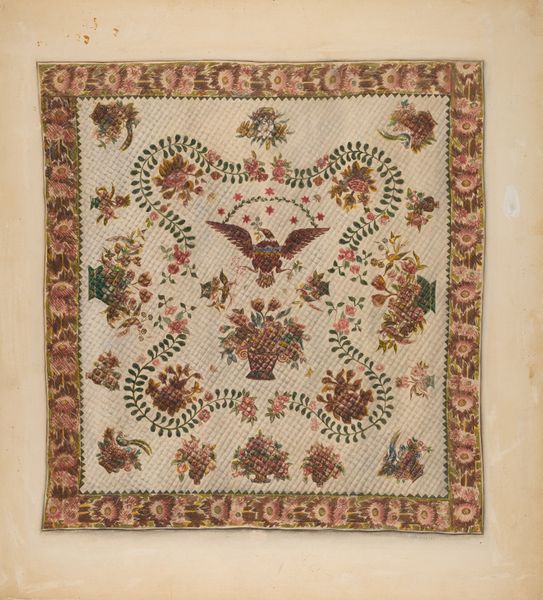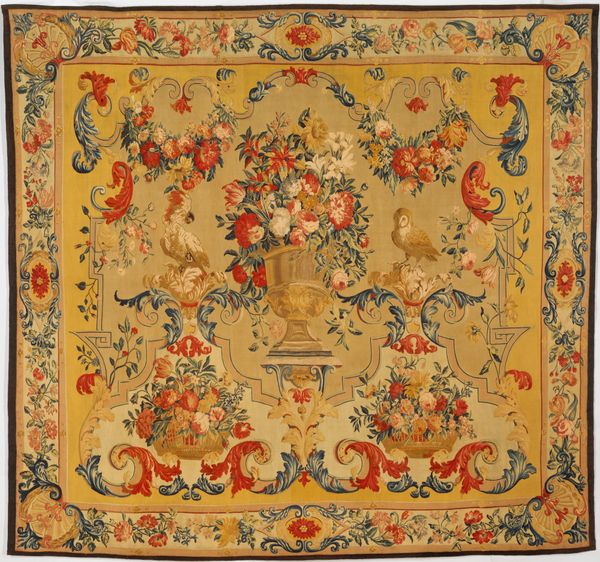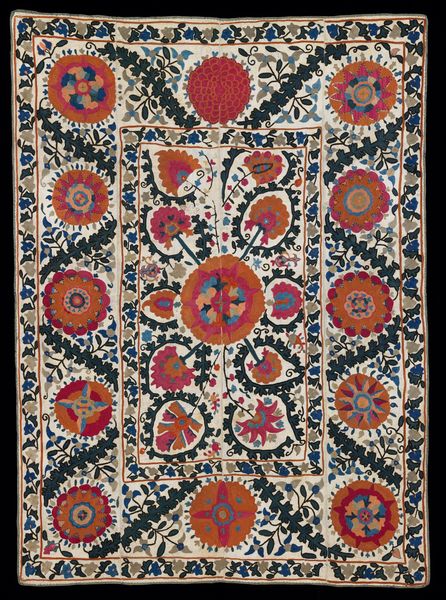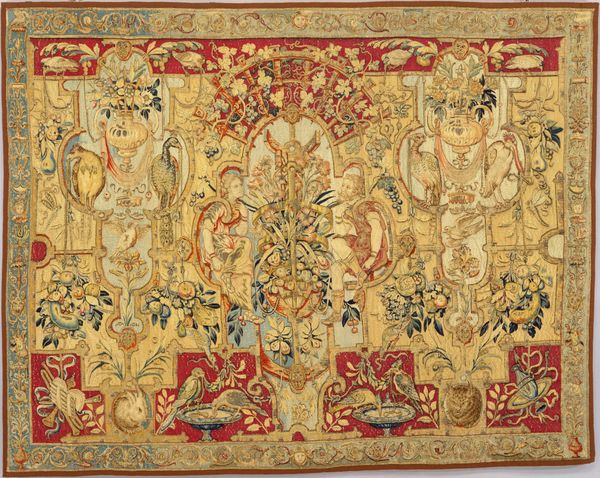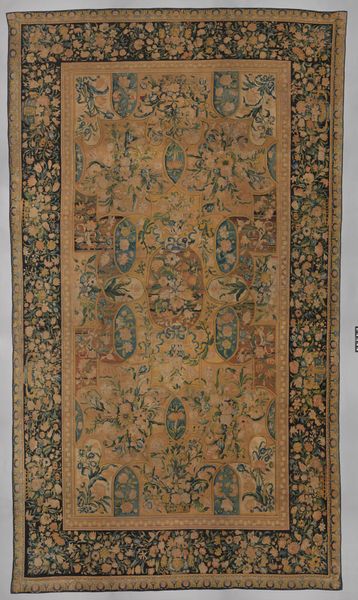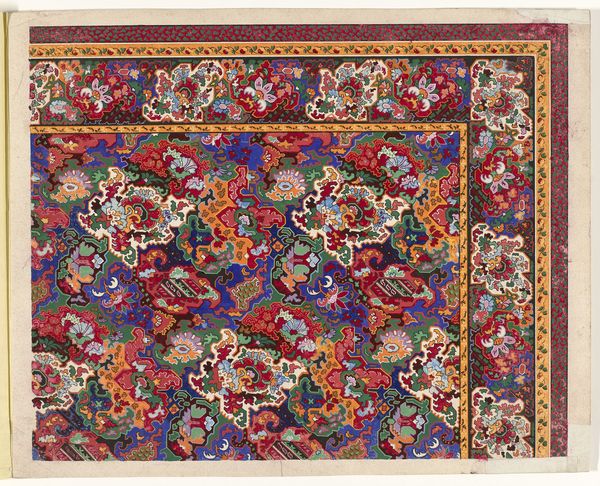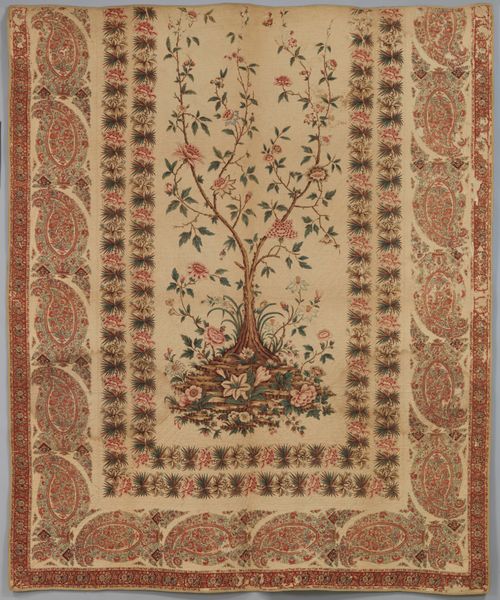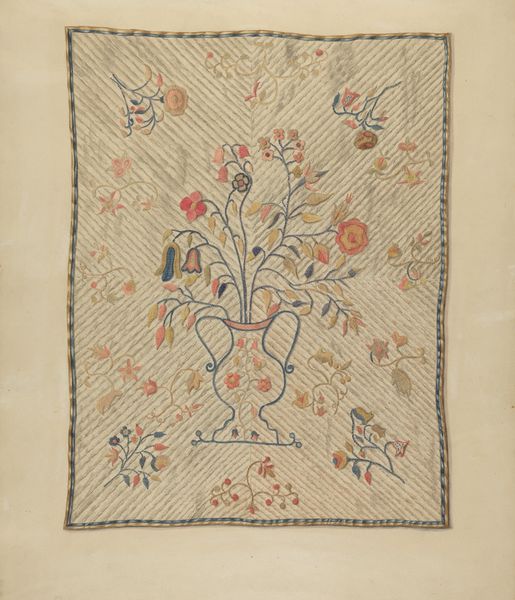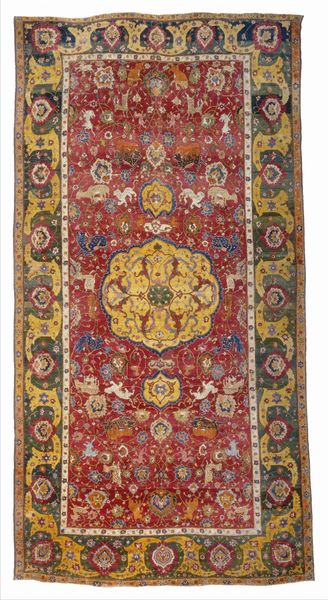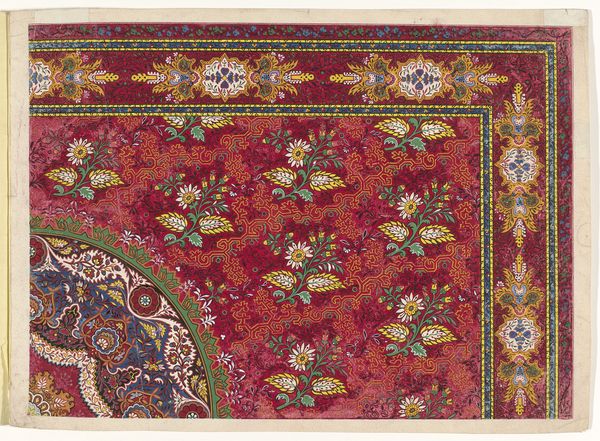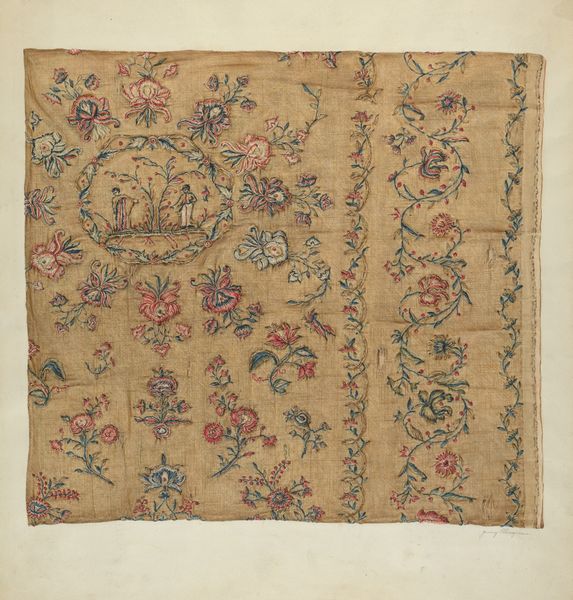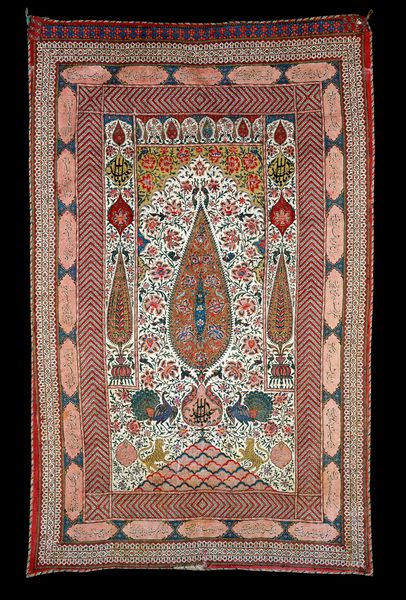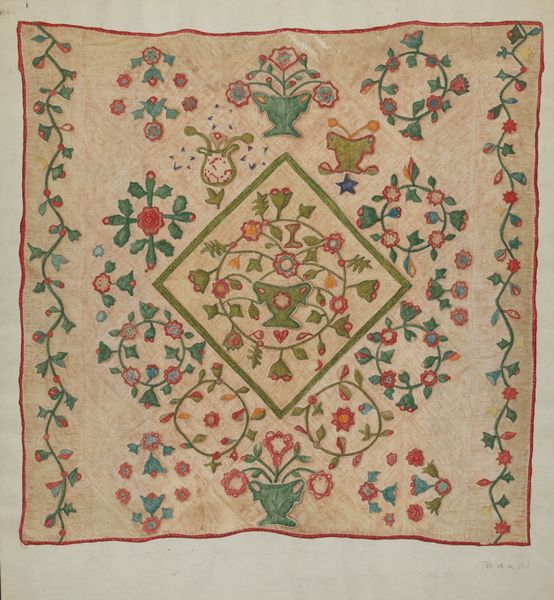
weaving, textile
#
pattern
#
dog
#
weaving
#
landscape
#
bird
#
textile
#
flower
#
ethnic pattern
#
romanticism
#
repetition of pattern
#
men
#
united-states
#
pattern repetition
#
genre-painting
#
textile design
#
imprinted textile
#
layered pattern
Dimensions: 103 1/4 x 90 1/2 in. (262.3 x 229.9 cm)
Copyright: Public Domain
Curator: What a soothing piece. Looking at this textile, it's easy to imagine snuggling beneath it on a chilly evening. Editor: Indeed! We're looking at the Phebe Warner Coverlet, crafted between 1800 and 1806. Now housed at the Metropolitan Museum of Art, this weaving offers a fascinating lens through which to examine early American textile arts and domestic life. Curator: It gives off an earthy aura. It feels handmade, of course, but more than that, intimate. I can almost smell the lavender of the drawer it's been kept in. Editor: What strikes me is the apparent interplay of pastoral idealization and the realities of labor inherent in its creation. Think about Phebe Warner herself, potentially weaving this while navigating the societal expectations of women at the turn of the 19th century. Was it a form of personal expression, a demonstration of skill, or perhaps even quiet resistance? Curator: Or perhaps a deeply soothing meditation for a worried mind. Look at how carefully the birds are rendered, and the simple forms of the people... there is almost an outsider art element to the choices and presentation. Editor: Absolutely. We see common motifs—flora, fauna, human figures, a classical urn. These are reoccurring images across different genres, but what does it mean to see them represented in such a domestic form? We have birds and flowers intertwined with more politically loaded imagery of an idyllic life, creating a hybrid narrative that could offer insight into the Warner's experience of her world. Curator: A perfect intersection, isn’t it? A woman, the land, her family... everything rendered with love. Even the little dogs make my heart melt. Editor: Thinking about it now, what seems on the surface a straightforward piece is riddled with complexities regarding labor, gender, class, and the formation of early American identity. It serves as an incredible window into a specific time and place. Curator: Right, It really does invite us to sit and contemplate... Perhaps it should be hung near a very soft couch.
Comments
No comments
Be the first to comment and join the conversation on the ultimate creative platform.
